International Women’s Day is upon us. So — if you haven’t already — take some time today to reach out to the women in your life. And, after you’ve done that, take just a little more time to read about what some of the most badass ladies in our local music scene have to say about their experiences in the industry.
While each of these women contributed guidance initially directed towards those seeking careers in music, their advice rings true for nearly any type of ambition: Create your own opportunities, align yourself with strong leaders, carry yourself with confidence — even if you have to fake it.
These are just a few of the thousands of women making their mark and paving the way in the music scene for generations to come. Some women have faced trauma while others have been lucky to avoid it. Many have fought their way to the top while others have forged their own path. As women, it is important to listen to each other’s stories — despite our varying experiences — to find the common themes that we can rally behind and use to support one another. From singers and songwriters to radio hosts and business owners, these women were gracious enough to share their stories with 303 Magazine.
“The powers that be want nothing more than for us to play their game instead of reimagining our own.” – Kalyn Heffernan
Leah Concialdi

303 Magazine: What’s your background in the music industry here in Denver?
Leah Concialdi: First and foremost, I’m a saxophone player. My two primary projects in Denver are ATOMGA, a 10-person afrobeat band, and TNERTLE, a live electrofunk ensemble. And then my “day job” is working in music PR and Marketing. I’m the label publicist for Color Red.
303: Can you tell me about your work with shesaid.so?
LC: It is a global network of women in the music industry. We launched the Denver chapter last July at the Underground Music Showcase. The thing that I really like about that group is that everyone creates opportunities for themselves. You see all the higher-ups, Executives, Booking Agents and Talent Buyers and they’re almost always men — and I think we’re in a cool phase in the industry where women are like, “I’m not going to wait around for that job opening.” Whether it’s starting your own business or creating your own events, so many of these women involved in shesaid.so are creating their own opportunities. I really respect and admire that.
303: Have you ever felt held back or like you’ve had more obstacles to overcome because of your gender?
LC: For sure. It’s interesting how, even to this day, they almost mold genders to certain instruments. I’ve definitely felt tokenism since a fifth grader, being one of only one or two females in an all-male saxophone section. Sometimes it’s easier for people to concentrate on what you look like or just the pure tokenism of [being a] female saxophonist. I’ve gotten comments from dudes like, “Oh you’re actually really good.” Why was there any doubt? I’m not going up to some dude after their performance saying, “Hey you actually crushed it tonight.”
303: Do you have any advice for women trying to break into the music industry?
LC: It’s definitely incredible to surround yourself with mentors and other women in the music industry. Two of the women in shesaid.so just put together a last-minute South by Southwest showcase because they saw a gap and just went for it. So don’t wait for that job opening. Don’t wait for someone to tell you it’s okay. It can be scary and a pain in the ass and not what you expected — but just go for it.
303: Who is a woman (or women) in the local music industry that you admire?
LC: I look up to trailblazers like Nadia Prescher from Madison House and Annabel Lukins from Cloud9 because they were some of the first to forge their own paths in the industry. In shesaid.so, I’m lucky to be surrounded by incredible ladies like Lauren Kashuk (Founder/Creative Director of Ideaison) and Cassie Cowen (Owner of Plus One Music Consulting). They didn’t just wait for job openings to fall into their laps — they created their own opportunities. If you’re at SXSW go to their Elevated Taste showcase with a cross-genre all-women/non-binary lineup.
Maddy O’Neal and Megan Hamilton are badasses paving the way for women in the electronic scene and it’s been amazing seeing them take control of their own careers and climb up exponentially. LaShá “Calyptic” and Kendra Krie (present and past vocalists in ATOMGA) are downright poets. And mad props to my “horn wife” and partner in crime, Alice Hansen, who also plays in ATOMGA and TNERTLE with me.
Stephanie Kroll
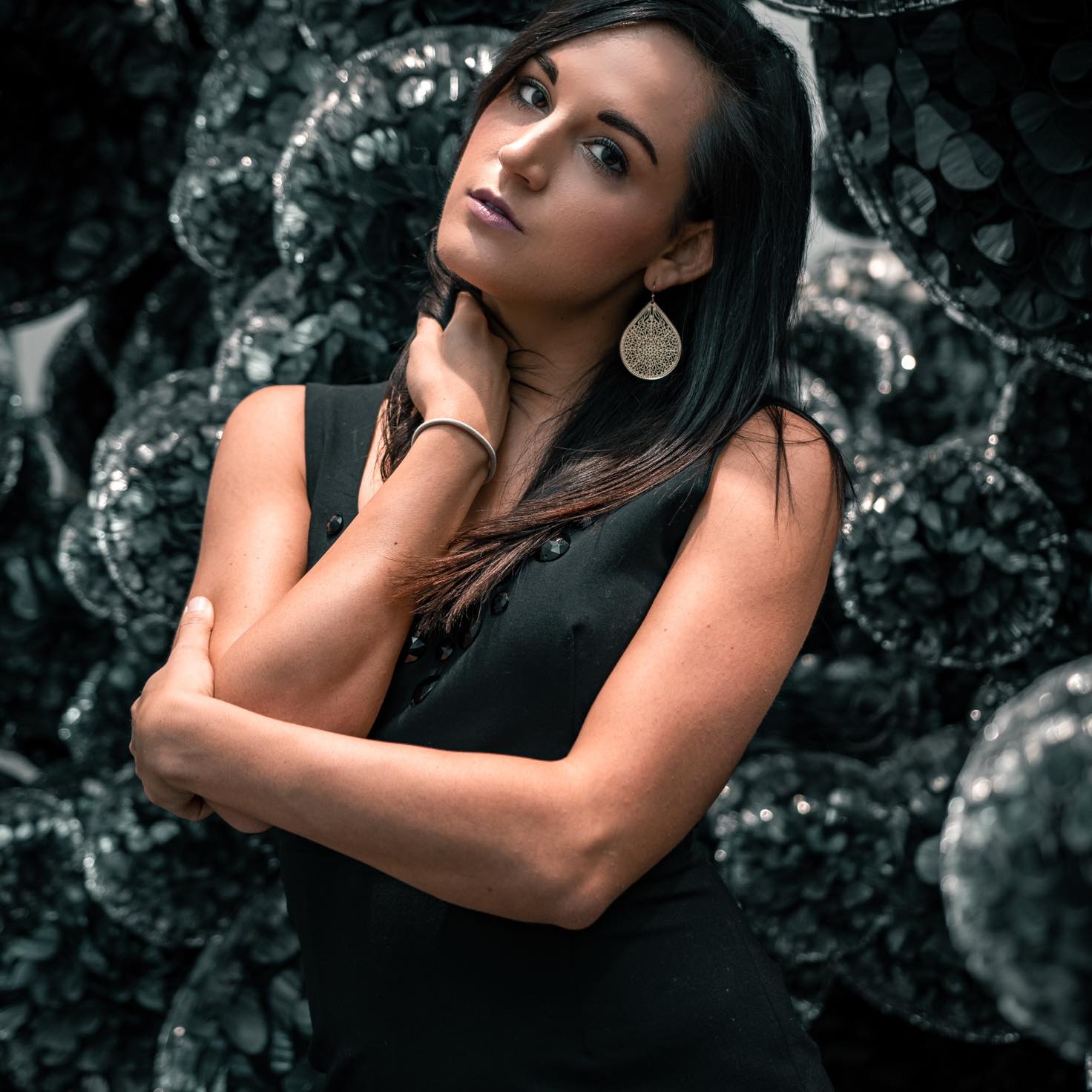
303 Magazine: What’s your background in the music industry here in Denver?
Stephanie Kroll: A long time ago I started as an intern at AEG, my senior year of college. I ended up working for Hulu in Santa Monica and did the television thing for a while. Then I moved back to Denver and really wanted to work in music again. It just so happened, I worked in the same building as EDM.com and Moody Recordings. It was a perfect networking opportunity. I got to meet a bunch of people in the Denver scene which is how I met Brennan Bryerly who’s our Talent Buyer here [at Soco Nightlife]. I had lunch with Brennan one day and [told him] I’m really trying to get into working in dance music. And he [said], “well I have this job opening up, it’s a music marketing job.” So I applied and went through a bunch of interviews and, for whatever reason, they picked me. I’ve been here for almost three years.
303: Have you ever felt held back or like you’ve had more obstacles to overcome because of your gender?
SK: I think that SoCo is a little bit of the anomaly. We’ve always hired females in the office, which is really cool because that doesn’t happen very often. I would say it depends on the situation because gender specific stuff isn’t as much of an issue in certain scenarios, but in other scenarios, it is — especially on the agency side. I think dance music, in particular, is a very male-dominated industry. It’s weird networking at bigger events because it’s mostly men, it’s kind of a boys club.
303: Do you have any advice for women trying to break into the music industry?
SK: Be very bold and very ambitious. When it comes to networking, don’t hold back and go for what you want. If there’s someone you know you need to meet in order to get somewhere, do everything in your power to meet that person. It’s just about being yourself. You have to just go for it.
303: Who is a woman (or women) in the local music industry that you admire?
SK: I have to pick two. I would say Lulu Simone is definitely the woman I admire most locally in our industry. She created and ran Souls in Action for such a long time and made such an impact on the community and is now the Events Director for Two Parts. I have mad respect for her. I also love and respect Ru Johnson for her major hustle as another female entrepreneur in the music space, she has completely changed the hip hop game in this city for the better.
Emily Satterlee
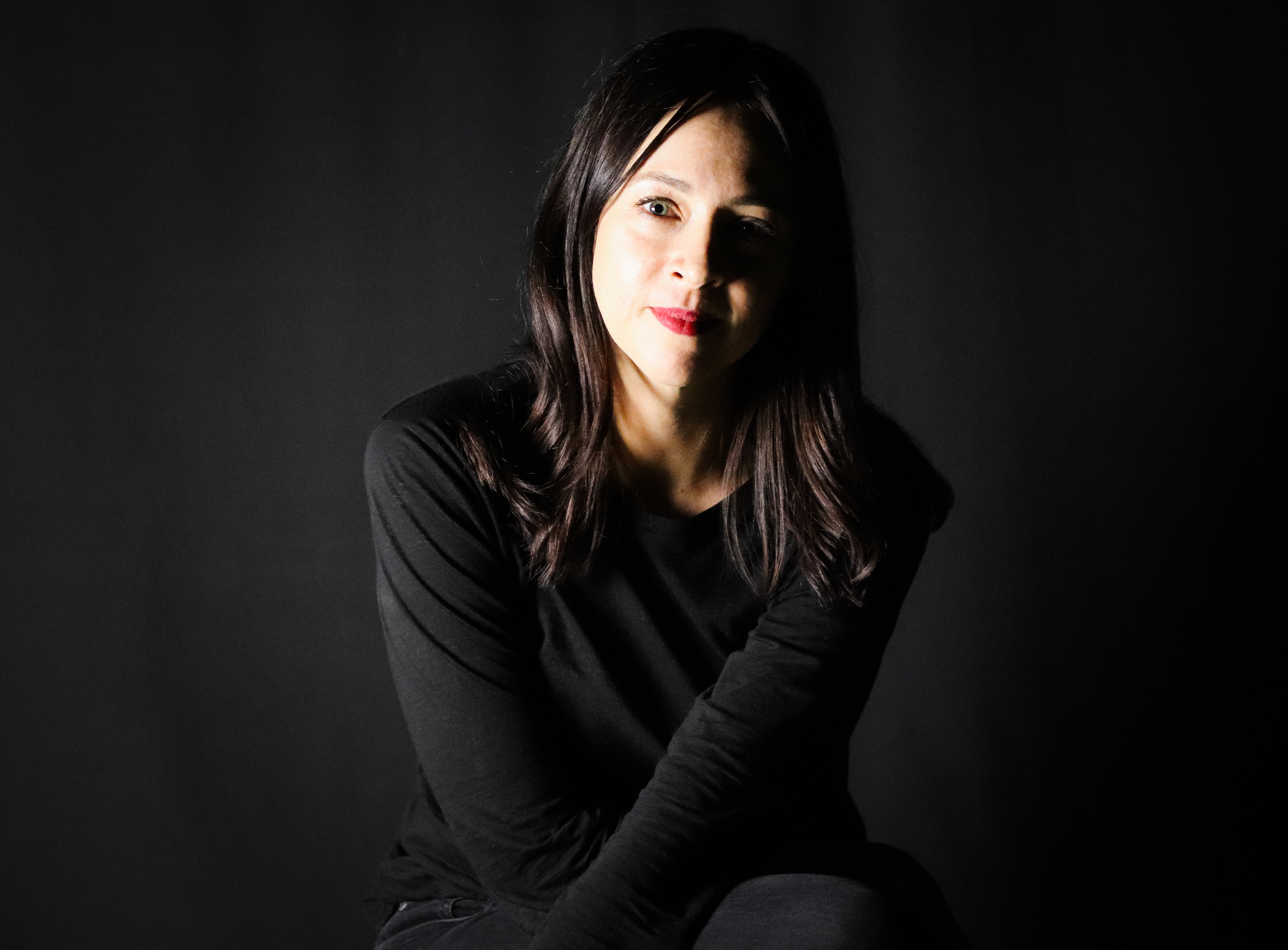
303 Magazine: What’s your background in the music industry here in Denver?
Emily Satterlee: I have a company called ItyDity, it’s an online production marketplace. It walks songwriters through a process of artistic development and then we match them with music producers who are uniquely suited for that particular songwriter. We foster the music production process in such a way that we’re promoting quality, we’re promoting equality, we’re committed to the safety and satisfaction of both the artist and producer.
The reason I created this company is to provide a solution to the challenges that I faced as a young female songwriter in my early twenties, who was new to the industry and was inexperienced and needed production. It’s a very confusing landscape without this structure.
303: Have you ever felt held back or like you’ve had more obstacles to overcome because of your gender?
ES: Looking back now and I can see that I was in a really vulnerable position. I was putting my trust in these more experienced professionals who would sometimes overcharge me or, in some cases, might have ulterior motives for the nature of our relationship. Sometimes I’d be working with a producer who I thought was excited about my music or interested in me for my talents and would quickly come to find out that he was pursuing me and sometimes that would result in the music not ever getting made because I didn’t reciprocate those advances. And the stories aren’t uncommon, it’s actually pretty pervasive in the industry.
And I don’t think that “me too” has really hit the music industry yet. I think that a lot of that is because the abuse of power of men over women in music doesn’t happen at the top, it’s happening at the indie level where most of the music is getting made these days — and that’s where it happened to me. And just because the abuse of power isn’t happening with celebrities and household names doesn’t make it any less painful. It actually allows it to occur more often and be less visible.
303: Do you have any advice for women trying to break into the music industry?
ES: Always have a third party involved when you’re meeting with potential collaborators — because not everyone in the industry is going to have your best interests at heart. For women trying to pursue a career on the business side of music, I think the way to advance your career as a woman in the music business is about banding together with other female leaders. Because I’ve been denied funding and grants from music-centered organizations and investment firms because the decision makers of these organization are men. They don’t actually understand the real problems that women are facing in the industry.
303: Who is a woman (or women) in the local music industry that you admire?
ES: I’m a big fan of Women Crush Music. What they’re doing is kind of like what I’m doing but in the live music space. Supporting female artists in live performance who aren’t getting booked — I really like what they’re doing.
Nicole Cacciavillano 
Photo courtesy of Nicole Cacciavillano
303 Magazine: What’s your background in the music industry here in Denver?
Nicole Cacciavillano: I was a teacher for a really long time and I was [also] a promoter booking dubstep artists from London. I couldn’t go to London all the time so we would bring them to Denver. I promoted shows for a while and that led to starting a talent agency [Sub.Mission]. Around 2013 I realized that I wanted to open my own venue. And in 2016, I opened The Black Box. So for The Black Box, I do the basic operations and I’m also the talent buyer.
303: Have you ever felt held back or like you’ve had more obstacles to overcome because of your gender?
NC: Because I was one of the first promoters in America to bring dubstep, I never really ran into any issues like that. Which is really great. Very recently a specific agency and a specific manager made some threats. But the funny part is, with those threats, I still get hit up by the agency. I think he was trying to intimidate me because I am a woman. But he doesn’t realize that I have bigger balls than most men in this industry. I’m not afraid to speak my mind and I’m not afraid to fight for what’s right.
303: Do you have any advice for women trying to break into the music industry?
NC: Don’t be intimated because you’re a woman in this industry. I think that we bring a level of understanding that maybe a lot of men don’t [have]. We have this special touch and thoroughness that is much needed. From throwing events to running an agency to running a venue — it takes a woman to do these jobs. As long as you’re doing something that you truly believe in and you’re doing it with the right motives and intention, that will shine through. It’s a learning experience though so you have to be flexible, the music industry changes so much that it’s very easy to sway to the dark side. Stay true to the reasons you started.
303: Who is a woman (or women) in the local music industry that you admire?
NC: LuLu Simone, she works for Two Parts now, she carved her own way. Recently I’ve been working with Christine Sweredoski from Red Bull Music. She has to fight the bigger the battle of the corporations but still understands keeping it real and the power of production. Sometimes with bigger companies, they want the bigger names but the bigger names aren’t what always makes sense in certain markets. So she has to fight for each market individually which I think is good.
Kenzi Everitt
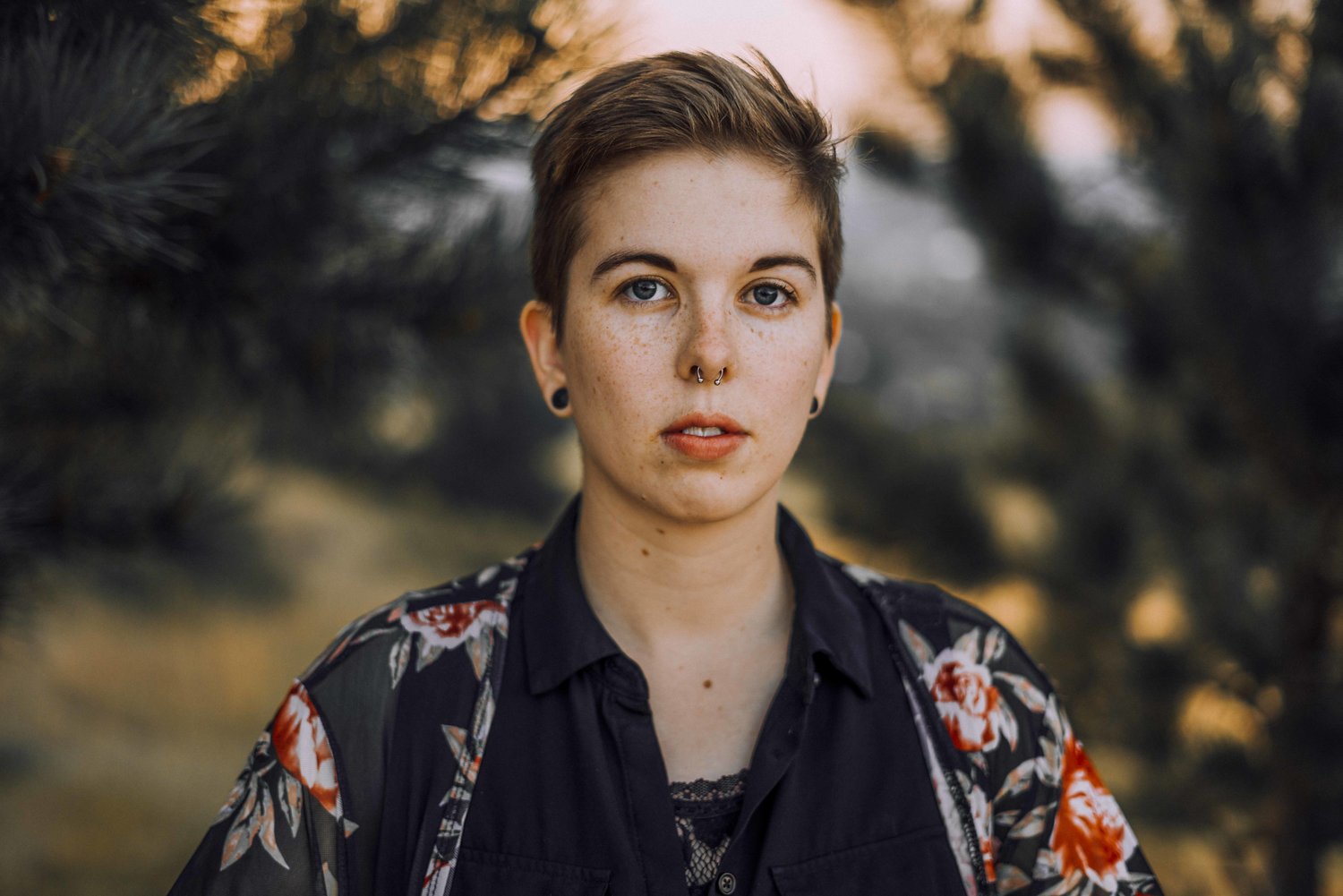
303 Magazine: What’s your background in the music industry here in Denver?
Kenzi Everitt: So I do a couple of things. I play in a band called Kinesics, I play guitar and I sing. And then I own a media company called Lady Cactus. We film a series of outdoor acoustic videos called the Overlook Sessions and we also film music videos, book shows, organize the Songwriters & Stem Ciders Showcase and we run a blog with a bunch of premieres and features. I’m also a talent buyer for the Underground Music Showcase and I volunteer with Girls Rock America, I’m the communications director for the Denver chapter. And I also spent the past half of a year on tour with Gregory Alan Isakov doing merch and photography.
303: Have you ever felt held back or like you’ve had more obstacles to overcome because of your gender?
KS: More than anything I feel like it’s a lack of representation, which has nothing to do with a lack of talented women working. The same thing can be said for people of color and people who are disabled and other marginalized groups. You go to shows sometimes and it’s all men — three bands of all men. A lot of people just aren’t aware of it. I think people should recognize that more. And people who are booking — make sure you’re conscious of this.
I feel like I’ve placed myself in communities where I don’t experience [discrimination] as much now. I went to school for Music Business but I started in Recording Arts and even when I started I think there were three women in the program out of 90.
303: Do you have any advice for women trying to break into the music industry?
KS: I think just finding organizations and volunteering or working for them, like Girls Rock Denver or Youth on Record, any of those amazing arts organizations. But otherwise — just showing up. There’s so many cool groups in Denver that are networking groups for arts or there’s a mental wellness meet up that happens every month for artists. Showing up and being involved and putting yourself out there I think is the best thing you can do.
303: Who is a woman (or women) in the local music industry that you admire?
KS: Gregory Alan Isakov’s manager, her name is Sarah Levin. I’ve been working with her for almost three years now. I think [she’s] a good example of doing things with intention and thoughtfulness. If I say I’m looking for a job then she already has six people for me to reach out to. Just providing opportunities and being really intelligent and thoughtful while doing it.
Britt Margit 
Photo by Lisa Siciliano of Dog Daze Photo
303 Magazine: What’s your background in the music industry here in Denver?
Britt Margit: I’m the chapter leader for an organization called Women Crush Music. The Denver/Boulder combined chapter was launched in October of last year. Since then, I’ve been working to go beyond the showcases to add more entrepreneurship and business based events to give women a learning tool. I was very fortunate going to a Music Business program for school to already have a lot of that at my disposal with music publishing, marketing, etc. I realized that’s not something that a lot of songwriters have that same access to.
I started writing songs when I was about 11 years old. I just had this idea in my head that you got assigned to a label and you got big and you just had to let somebody else do the work for you. I ended up going to school for a Vocal Performance program at CU-Boulder for a couple of years and finding that label — or at least thinking that I found that label who would support that career for me.
303: Have you ever felt held back or like you’ve had more obstacles to overcome because of your gender?
BM: The first time I really experienced that was with [that label]. I was very much more of a folk songwriter but what ended up being recorded fell more in the pop vein because I was a younger woman and, therefore, that’s the kind of music I needed to create to be able to sell. Beyond that, I was told that I wasn’t allowed to wear the glasses that I needed because I wouldn’t be seen as being sexy.
I was made to feel like an object and not a person. It was interesting to see the way that I was written off because any decision that I made, they immediately said, “you’re just thinking with your emotions.” That excuse was used a lot. As I’ve gone into business, and this isn’t true of my current job, but you feel that you can be written off very easily if somebody doesn’t like what you’re saying.
303: Do you have any advice for women trying to break into the music industry?
BM: I think the biggest thing is to find any and every resource you can to educate yourself. From the music business books to places that you can be heard and be seen and mentors that will help you through it. Don’t let anybody make your decisions for you — this goes for anybody in the music industry, not just women. Just because somebody says that they know more or they’ve been in something for longer doesn’t mean they know what’s best for you
303: Who is a woman (or women) in the local music industry that you admire?
BM: I would have to say Kenzi Everitt. Seeing the kind of community that she’s cultivated and created for songwriters in Denver is incredible. What she’s doing with Lady Cactus media, both with the live sessions as well as the monthly songwriter showcases, is something that’s incredible to watch. Part of that is because of how hard she works. I don’t think I’ve met anybody who has so much on their plate and manages to get it all done.
Lela Roy
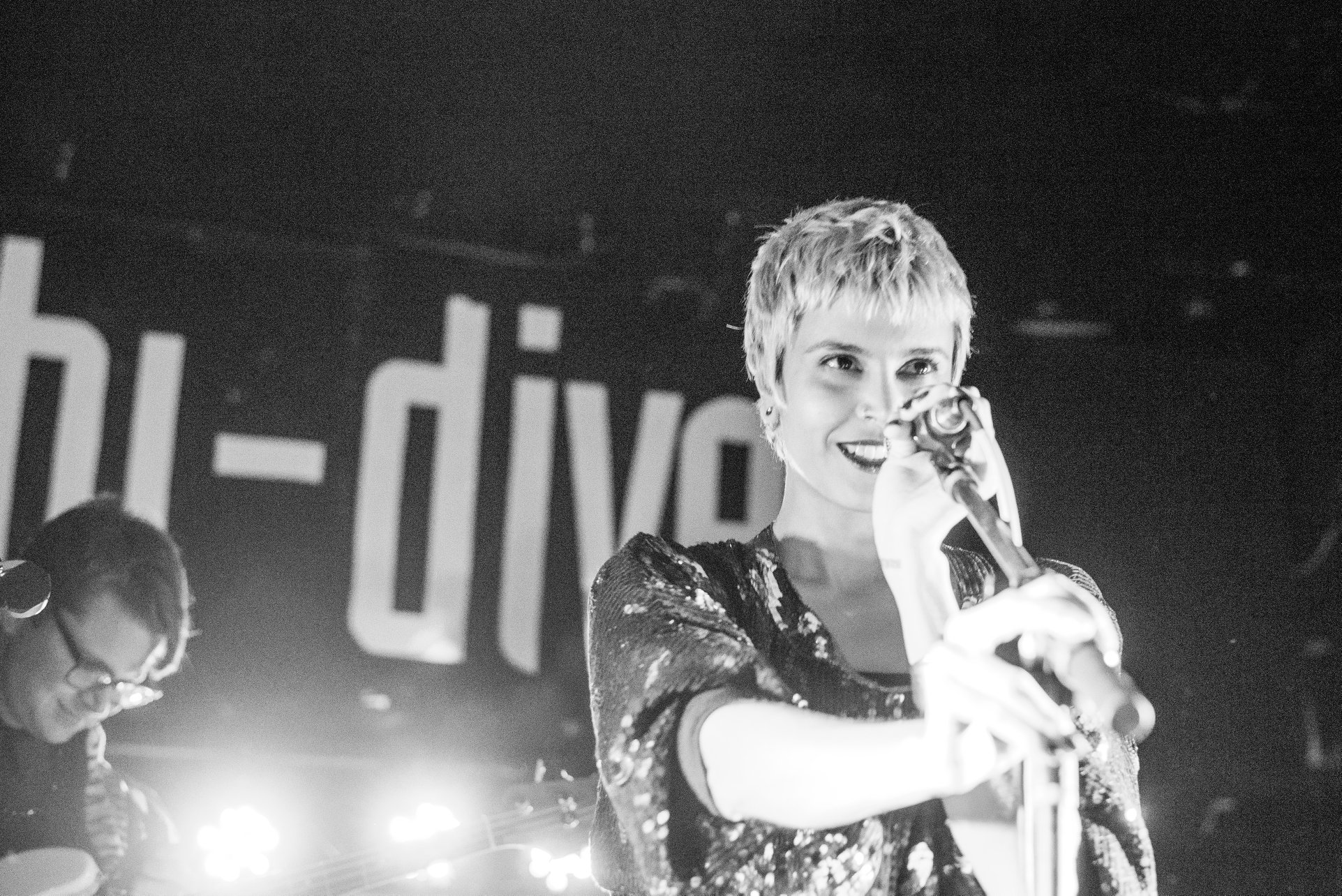
303 Magazine: What’s your background in the music industry here in Denver?
Lela Roy: I’ve been playing music since I was a little kid — it’s always been my dream to be a musician. I’ve done a couple of solo things, been in a few bands but I’d say Oxeye daisy is probably my first real, legitimate band. My background, educationally, is actually in wildlife biology. I absolutely love wildlife biology and probably will never fully give that up. I think that it would be my dream if I could do music during the winter and then do a wildlife field season job because they’re just so much fun.
303: Have you ever felt held back or like you’ve had more obstacles to overcome because of your gender?
LR: Personally, I don’t feel like I’ve experienced [discrimination] that much. This is maybe not the most popular thing to say right now, but I honestly feel like people are actually starting to open their eyes to these issues that are so present in our culture and I’ve actually found that it’s been an advantage to be a woman in this industry. People just really love woman singers right now. Obviously, there’s still a lot of work that has to be done, but in this community here — it feels really welcoming to be a woman. I think a lot of it might be the culture here.
303: Do you have any advice for women trying to break into the music industry?
LR: You have to have really thick skin to be in this industry, like any entertainment industry. And a lot of it is the energy that you put out there and the way that you project yourself. You have to carry yourself in a way that gives people no other choice but to treat you with respect and dignity. That’s a lot easier said than done — it takes a lot of self-exploration to find that strength to genuinely be that person.
And we’re all working on that. I think it’s one of the best strategies that we can all utilize, not just in the music industry, but just as women. As long as you’re convincing other people, eventually you’ll get the hang of it and it just becomes second nature.
303: Who is a woman (or women) in the local music industry that you admire?
LR: First of all, all the ladies that work at CPR like Bruce Trujillo, Alisha Sweeney and Jessi Whitten. It’s just something about them — I think it’s just because they’re badasses and they play badass music all day. That whole station is really supportive of women in general. It just plays a lot of female artists and I think that’s really cool that they’re supporting us like that.
As far as bands, Melanie Steinway from Tyto Alba — I love the openness and rawness of Melanie’s voice and her lyrics. Another performer I really admire, the singer from Church Fire [Shannon Webber]. Shoutout to her because she is such a badass performer and they are such weirdos in the best way possible. I always love seeing them play their music.
Bridget Law
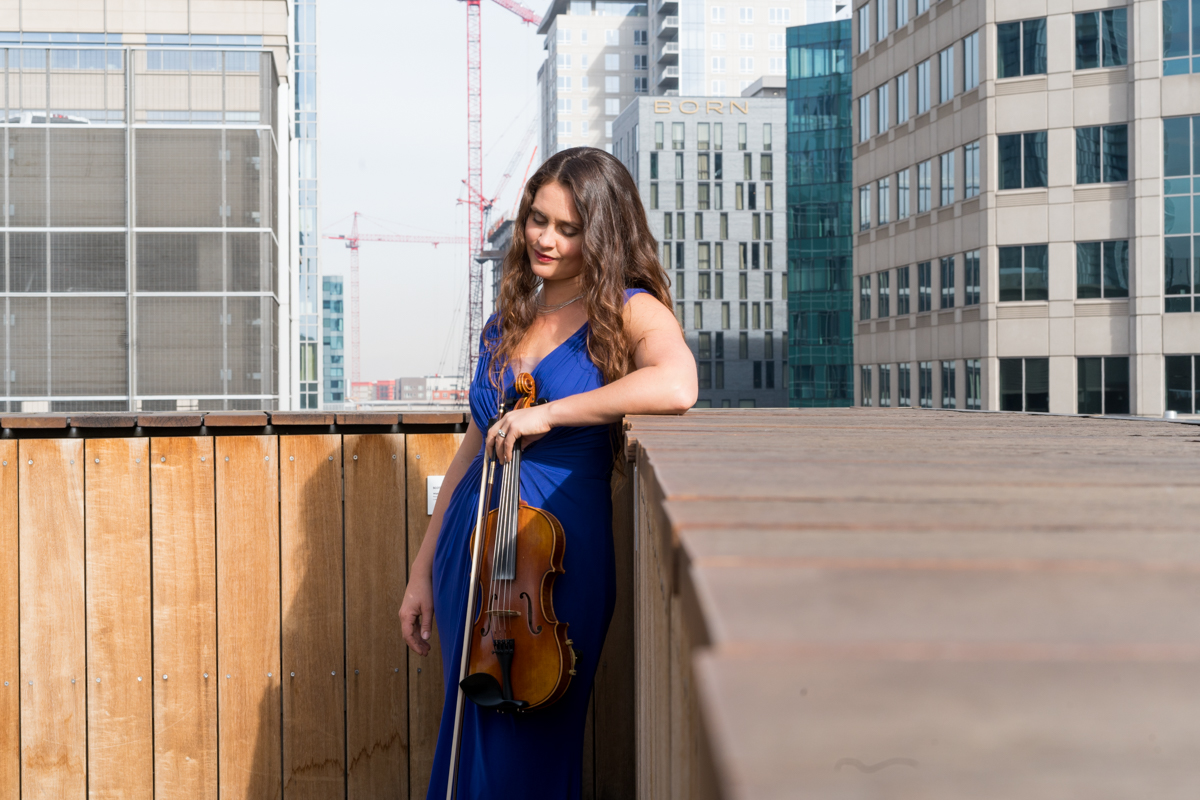
303 Magazine: What’s your background in the music industry here in Denver?
Bridget Law: Brief history is that I went to the Waldorf school and started playing the violin. When choosing my major in college, I didn’t think I had what it would take to become a performer so I went to school at Colorado University of Denver in the Music Industry Studies program and studied as a Music Business major. Soon into that, I got called out by my peers that they thought I wanted to be a performer — so I began focusing more on performance. I was the only fiddle player in the program and I wasn’t a violin performance major so it allowed me a lot of freedom as far as how I studied the instrument.
Then Elephant Revival started and I played with [them] for 11 years. When I noticed that I didn’t want to be on the road forever, I started gently transitioning out of touring. I always intended that, after my performance career, I would go back into the music industry — and I wasn’t sure how, but I knew I’d figure it out. So I’ve been an agent, I’ve been a manager, [but] what I’m especially good at is event coordination and production. Currently, my main job is working for WinterWonderGrass and Campout for the Cause. I like to say that my name is also a verb and I “bridge-it,” I build bridges — I have a way of helping make things happen.
303: Have you ever felt held back or like you’ve had more obstacles to overcome because of your gender?
BL: I often feel like I’ve been pretty lucky as far as the oppression of women has gone. Although [the music industry] is considered a male-dominated industry, it’s also a far more progressive industry compared to others and I’ve witnessed the welcoming of women performers. That transformation has happened really fast and with really wide open arms.
The music industry is a great example of an industry that has benefited from welcoming feminine energy into it because meeting people’s needs is a very feminine energetic. When you’re a band tirelessly on the road going from city to city, you need to be taken care of — and that’s where I feel like females who are managers are a lot more tapped into what those needs are. And, therefore, it’s helping the industry.
303: Do you have any advice for women trying to break into the music industry?
BL: I think being articulate is really helpful. What I’ve found is that all issues can be resolved through clear communication — present, solid, conscious communication goes a long way. Secondly, choose the people that you work with wisely. Don’t give the assholes the time of day. Your energy and what you’re ready to contribute to something is a beautiful gift. Don’t give that to the people who mistreat you. Trust the people that have the fundamentals going — maybe they don’t have the biggest festival or they don’t pay as well — but, in the long run, being treated with respect has monetary value by far.
303: Who is a woman (or women) in the local music industry that you admire?
BL: Amy Kimberly — talk about somebody who has really watched it change. She currently produces the Carbondale Mountain Fair, which is a free festival in Carbondale. She raises money to keep arts alive in Carbondale and, thanks to her and the events that she’s put together and the vibrations that she’s curated, there’s just an amazing community there [of] really elevated, loving, creative humans. I really admire her. And I just love how much she loves music and how much she loves art and how much she loves teaching people and just curating absolute magic in her community — and I hope to do the same in mine.
Erin Roberts
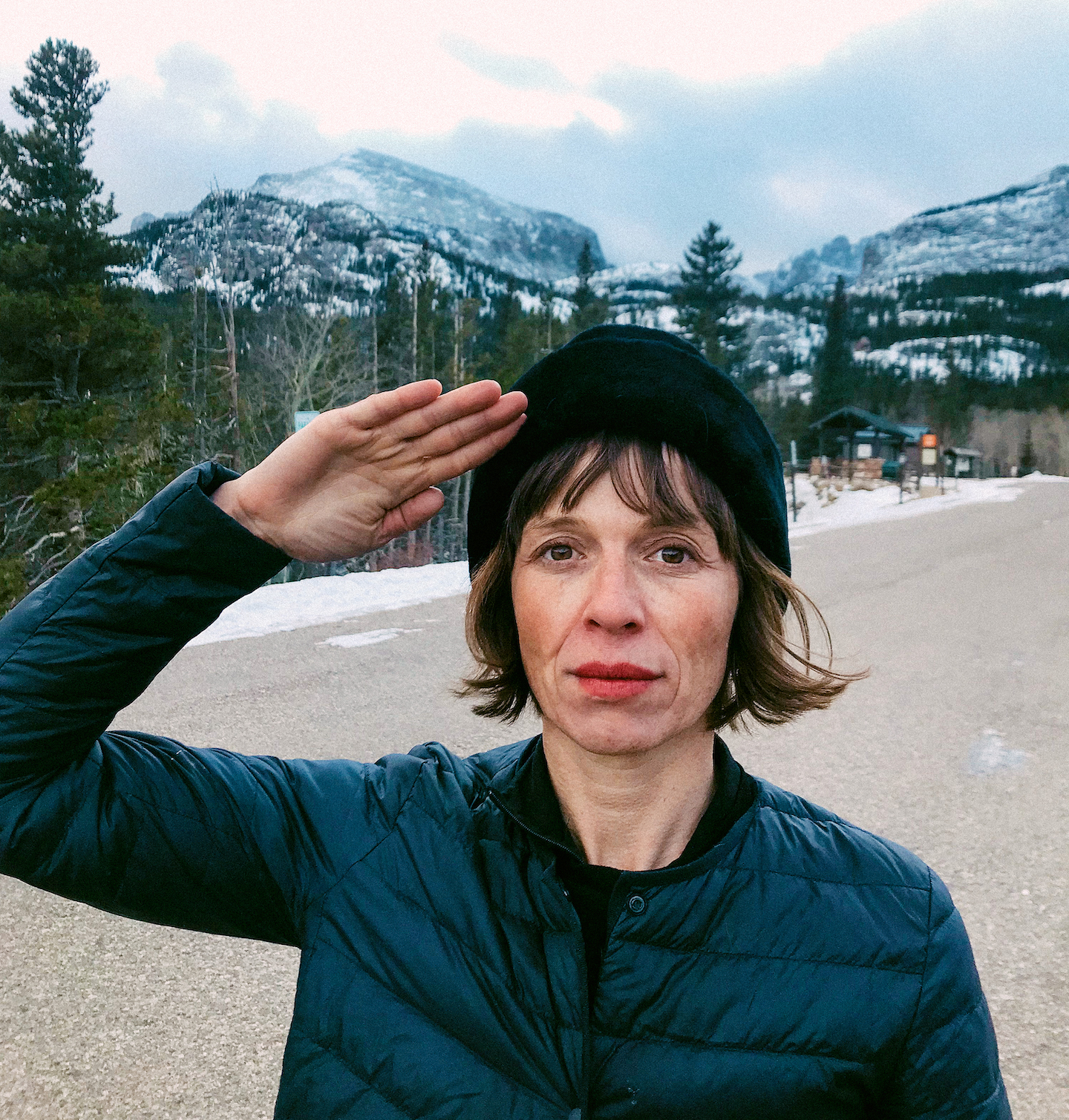
303 Magazine: What’s your background in the music industry here in Denver?
Erin Roberts: I’ve been working in the industry since 2001, both as a musician and in various industries supporting music like music management, college and community radio and artist development. I started playing music as a kid after I picked up a trumpet at a neighbor’s garage sale. That was 4th grade, and music has been the one consistent thing in my life since then.
I got into the larger industry in 2001 when I started as a DJ at Radio1190. I hosted a local music show called Local Shakedown there for five years before moving to Crested Butte to manage a community station there. The rest of the story is long and winding, though at the core of my professional trajectory is a real love of music and deep care for the musician.
303: Have you ever felt held back or like you’ve had more obstacles to overcome because of your gender?
ER: I want to first point out that I’ve been lucky to work for some really brilliant organizations and individuals over the years, and those folks have shown me that it’s really possible to advance the industry in ways that don’t hold women back. But I think there are huge issues with gender equality in the workplace, not exclusive to the music industry, that I’ve certainly felt across my career. I started out in radio, and while I was lucky to work for great organizations and was treated with respect by my radio employers, the industry as a whole is pretty white and pretty male, and leadership roles are generally offered to those that fit that shape.
The more my career has advanced, the more I’ve felt held back by gender. Once I got into positions managing other people or part of larger organizations with more bureaucracy, I felt blindsided by the discrepancies in how men were regarded within the organizations and the opportunities offered to them. I was undermined by less experienced coworkers that were men and unless I candy coated my speech, smiled more and acted very congenial, I was labeled as too intense.
I’ve had many conversations in the last couple of weeks discussing the lack of ability to confront sexism in the workplace. It’s like there is no appropriate language we are allowed to use. I’ve been told that it’s too offensive to tell my employees that their actions in a certain situation might be perceived as sexist to women. Of course, there are beautiful exceptions, and I try my best to surround myself with the brilliant ideators and creatives that are breaking the mold. And they’re out there, circumnavigating the bullshit and creating really good work.
303: Do you have any advice for women trying to break into the music industry?
ER: Listen hard to the inner voice, believe in your abilities, build a network of professionals to lean on for support, don’t be afraid to walk away from abusive situations or from people that don’t respect you. Do grunt work for brilliant people, gain experience, have patience.
303: Who is a woman (or women) in the local music industry that you admire?
ER: There are so many total badasses in the industry. Sarah Slater is someone I think is so incredibly powerful and influential, founding Titwrench and growing that festival year after year. Aja Black of the Reminders is a powerhouse, great performer whose energy and positivity is infectious.
Jessi Whitten
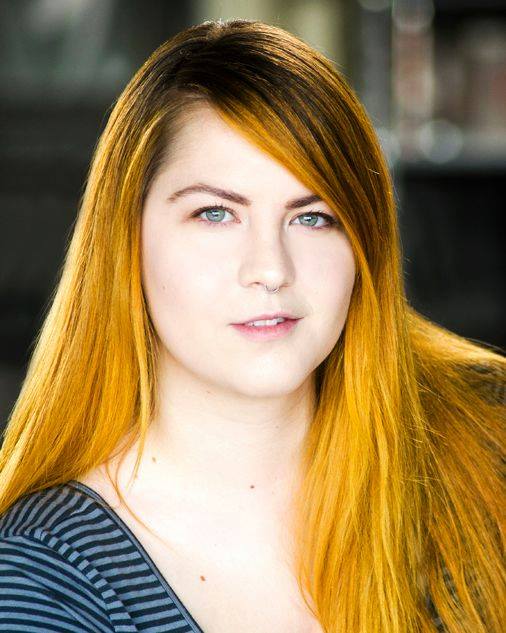
303 Magazine: What’s your background in the music industry here in Denver?
Jessie Whitten: I got my start in radio the way a lot of people did — in college radio. I went to the University of Colorado Boulder and they have a really amazing legacy radio station that’s still on the air every day, Radio1190. I fell in love with radio before I even fell in love with music. This merged my two passions and I realized it wasn’t just something I wanted to do in college.
Luckily, while I was at Radio1190, my general manager ended up talking to Colorado Public Radio at the time that I was his music director. I became a really helpful partner to him while I was there — so much so that when he worked out a deal with Colorado Public Radio to build a new radio station out of their AM dial, he brought the president down to the little basement radio station to meet me. He agreed that I had a place in radio and they took me on as music director of Open Air at Colorado Public Radio. So I’ve been with Open Air from the start, about seven and a half years ago.
303: Have you ever felt held back or like you’ve had more obstacles to overcome because of your gender?
JW: Absolutely. Radio isn’t unique from other industries in that it’s rare that the higher you look up the leadership chain, the fewer women you’ll see. And it’s not for a shortage of female talent in the industry at all. Oftentimes, if there’s a white male in a position of power, they’ll reach down to the person they see themselves in who is also a white male.
It’s difficult because, as you are looking for people to fill leadership positions, if you are not coming at it with the perspective of understanding diversity of voices as a priority and a value in itself, you’re going to continue to hire the same talent pool of people, which historically is white males. It really is going to take an active and explicit acknowledgment that there’s value in diversity.
The thing that I really have hope for is this idea that for years women have been struggling to find room at the table and, more and more, you’re seeing female talent say, “I’m going to build my own table, I’m going to start making my own thing.” Organizations are going to have to acknowledge the value of female leadership when they see it proved as something that, not only is valuable and interesting but also a fiscally smart decision.
303: Do you have any advice for women trying to break into the music industry?
JW: You have to find the thing that you want to do and then you have to make yourself invaluable in any way that you can. And either make that clear to your organization that they won’t function without you or trust yourself to make your own thing. You don’t need to know all the answers before you jump into something. The only way you really have a new opportunity is if you take a leap and you learn while you’re doing it.
303: Who is a woman (or women) in the local music industry that you admire?
JW: I’ll start with the other women on my team, Alisha Sweeney and Bruce Trujillo. They’re both incredibly talented and driven and they’ve faced a lot of the same obstacles I have in this industry and they continue to discover themselves. It’s amazing to watch these women grow themselves and their careers over the time I’ve known them so intimately.
Beyond that, folks like Bree Davies — she’s one of those perfect examples of people who won’t take no for an answer. She’s always been a champion of the local music scene for years and now she’s got her own podcast talking about Denver issues. She’s one of those people who constantly fight for her values and to lift up her voice. There’s also Heather Dalton from Colorado Public Television — she’s amazing. She’s been a voice of music advocacy in Denver for years and has done so much to try to elevate the independent music voice here in Colorado.
Kalyn Heffernan 
Photo by David Stevens, courtesy of Kalyn Heffernan’s Facebook Page
303 Magazine: What’s your background in the music industry here in Denver?
Kalyn Heffernan: I started Wheelchair Sports Camp about 10 years ago now while going to school at UC-Denver for Engineering. I’ve been rapping most of my life and engineering was a backup plan — until I realized it’s just as competitive as being a musician. Plus, I used all my studio time to figure out how to record myself which is why I kept on with the music.
Then I slipped and fell on a dream job with Youth On Record, teaching music production and songwriting with a social justice lens to underserved youth in treatment centers and [Denver Public Schools]. The more we toured the more connections we made with the musicians and the industry around the country and even outside of the country. I basically haven’t stopped working for music since high school, and it’s led me to a life I never could have imagined.
303: What initially prompted you to run for office?
KH: The joke that I’ll never run for anything, and then April Fools Day really got the best of me last year. I’ve already been called the mayor for a while because I’m a recognizable Denver kid who everyone seems to know. The rolling joke spiraled on a trip home from playing in New Mexico after a green chile breakfast conversation about the uncertainty of Denver’s future and our artistic desperations to do more. By the time we got back home, we had a bag full of campaign slogans, a better idea of the process to file for mayor and the impulsive decision to make a video on April Fools Day announcing my candidacy.
303: Have you ever felt held back or like you’ve had more obstacles to overcome because of your gender?
KH: I didn’t really contextualize this until I was quite a bit older and connected to more organizers and tough conversations. I realize now that because I’m a tomboy, queer and because of my disability, I’ve been very de-sexualized which has given me a patriarchal privilege to be around a lot of men and “fit-right-in.” This is something I’ve always observed when my more femme friends are treated completely differently than I — but, the older I get, the less tolerance I have.
After speaking on campus with other women engineers from my program, we all realized that a lot of our feelings of unworthiness were because we were typically the only women in a class of men engineers who knew everything. I still roll into obstacles with men in the studio who love to tell me how to do things or boss me around like I’m not as qualified (if not more), but I’m getting better at advocating for myself and others when I see it happen.
303: Do you have any advice for women trying to break into the music industry?
KH: Mentor and be mentored. If you see a girl, non-binary, disabled, or outcast person in the corner who doesn’t look like they feel safe or loved or appreciated in a space, hold their hand and build relationships. This is a male-dominated world, but there’s more of us than them which means we also have to be better at teaching, supporting and learning from each other. Curate your circles, it’s not an easy task and I’m still working on it, but the powers that be want nothing more than for us to play their game instead of reimagining our own.
303: Who is a woman (or women) in the local music industry that you admire?
KH: I have to shoutout Titwrench for creating such a mega-space that cultivated so many of us weirdos including — but not limited to — The Maybe So’s, Milk Blossoms, Church Fire, RARE BYRD$, SAYWUT!, BIGAWATT, CHICHARRA, Lady Uranium, Milch De La Maquina, Las Sucias and so many more. Sarah Slater, Bree Davies and the founders [of Titwrench] created a safe space to be vulnerable, to push boundaries and to build families all over the world.
I am so lucky to love Girls Rock Denver for, not only helping young girls and queers to feel like themselves but also for gathering so many of us adults to be better friends and continue the work all year. FEMpowered at Youth On Record is now a place to host more youth with mentors all year round. And lastly, I gotta give it up to Venus (mother effing) Cruz who has been holding down this city for so many of us, pushing us all to be better. She is one of the best musicians I know and always finds a way to call me when I need to feel loved the most. I am most certainly leaving out pages of women I look up to and love so much.
[give_form id="772002"]





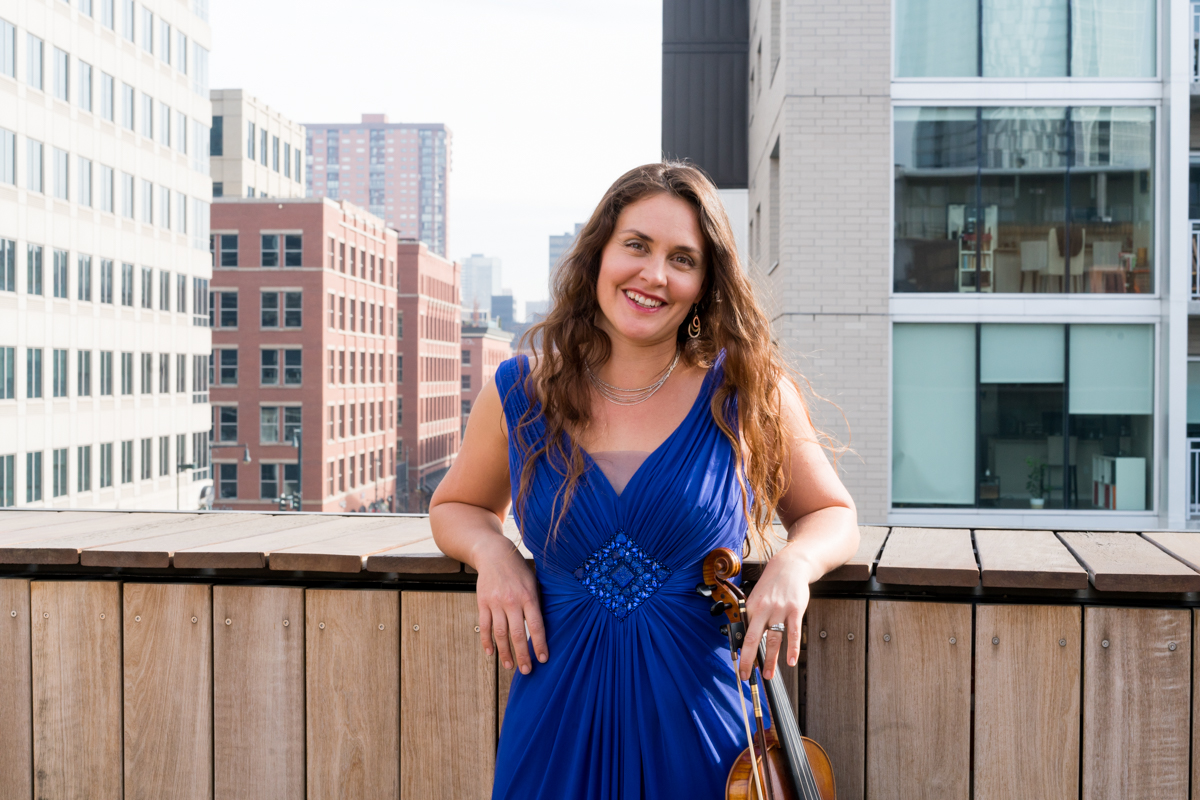
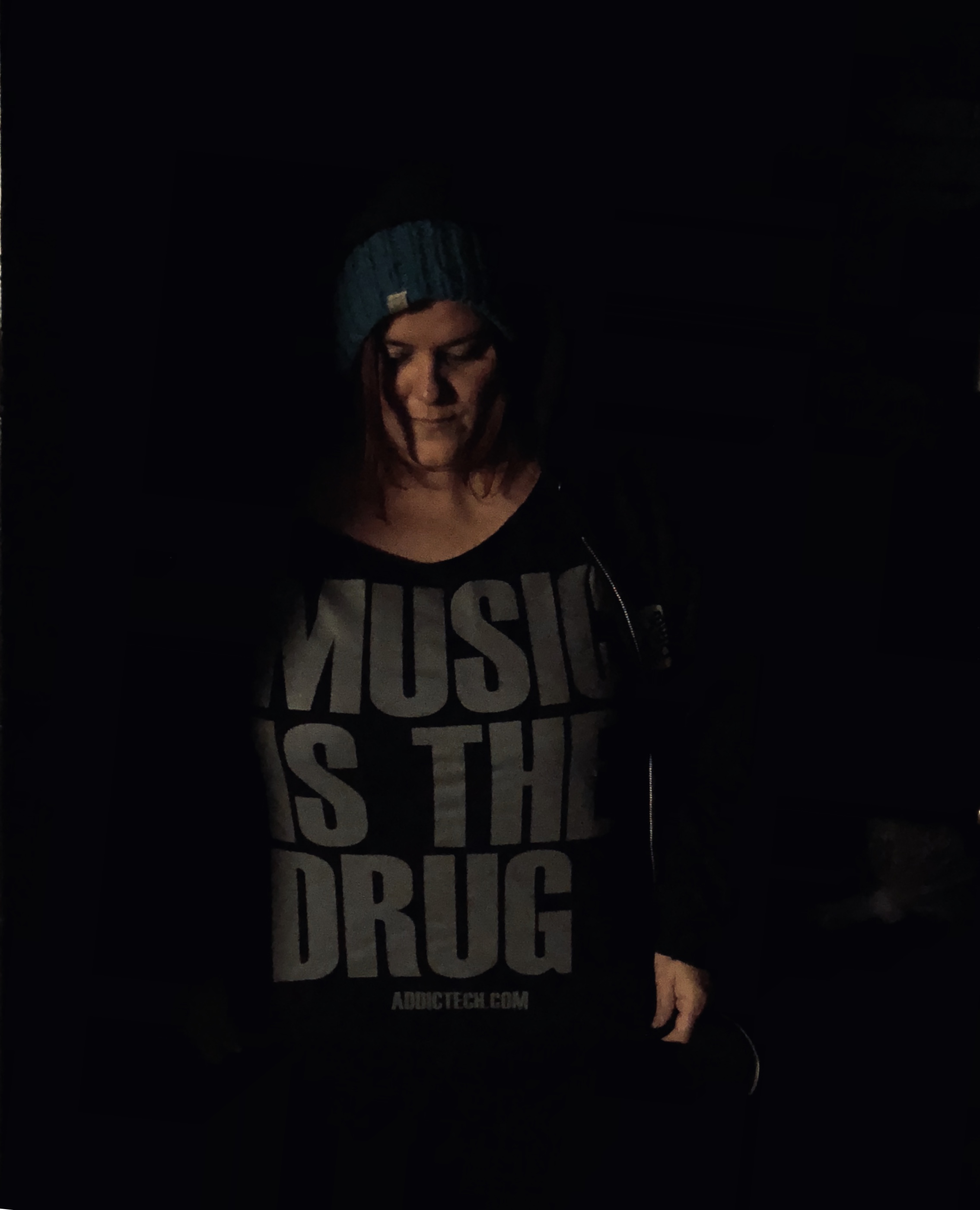
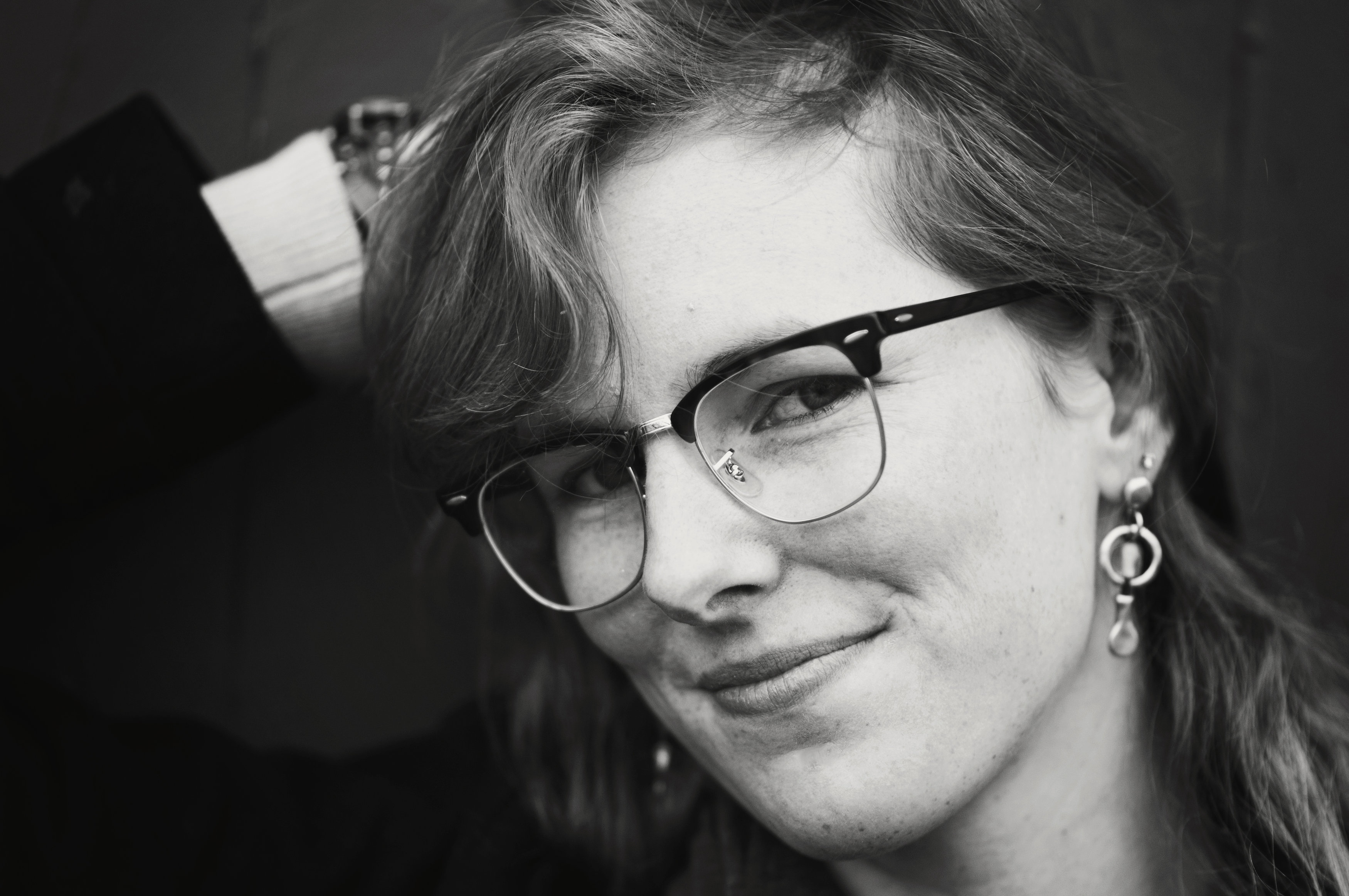
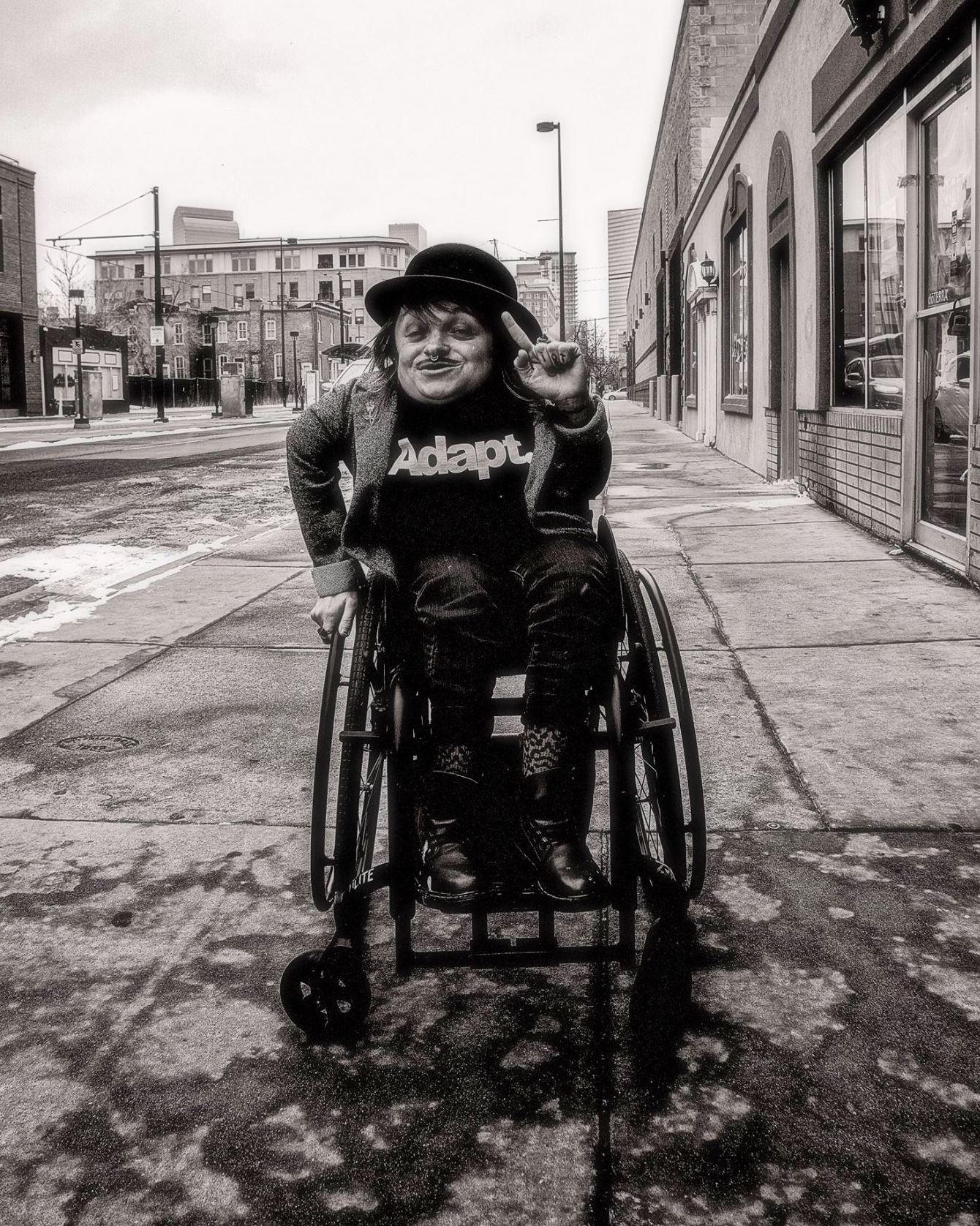
Photo of Oxeye Daisy is taken by me, Jake Cox – please credit!
Thanks for letting us know. We have updated it.